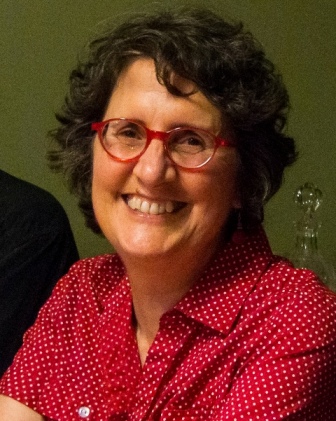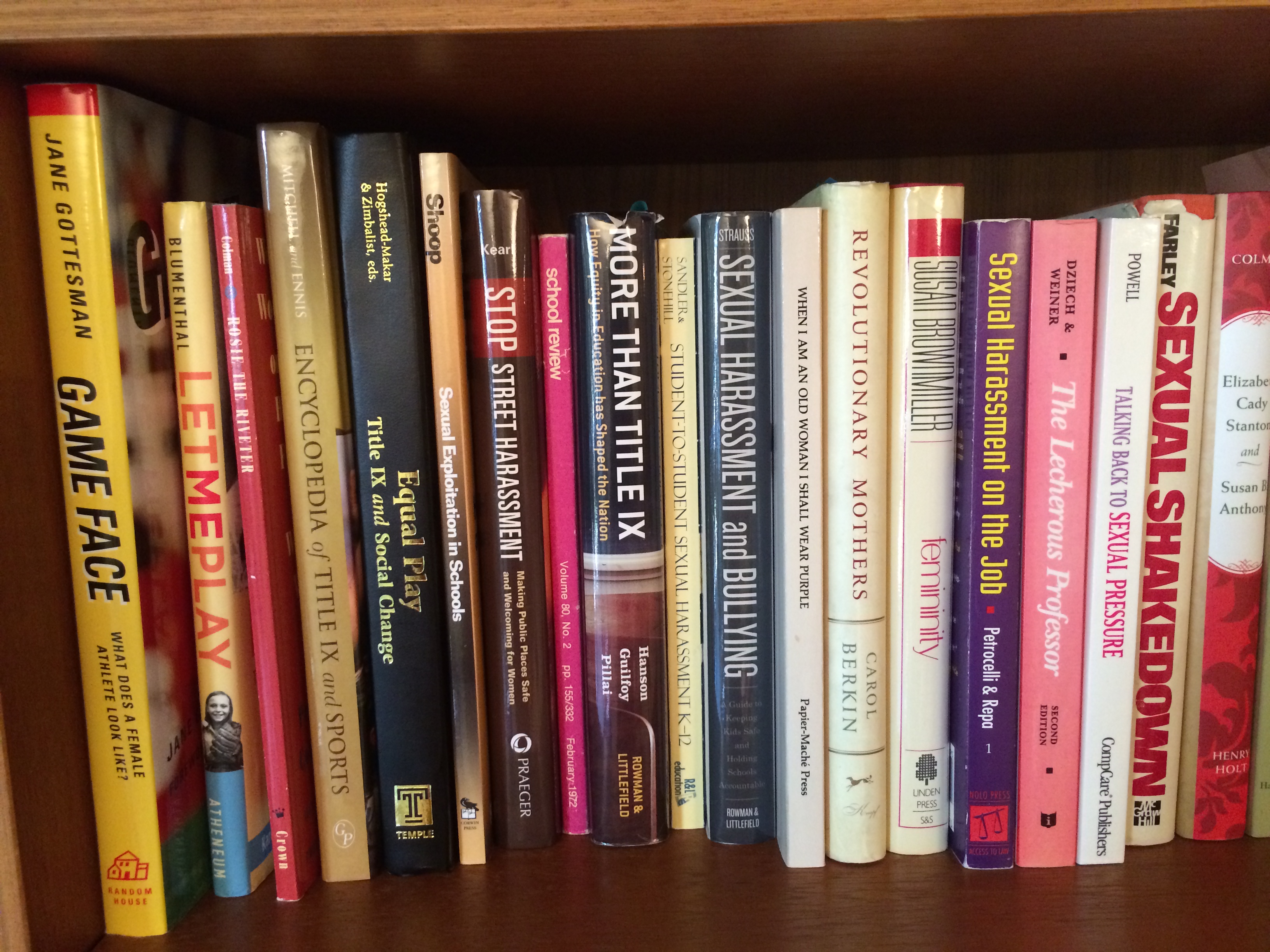PEER took Title IX to the kids
“It’s just ordinary us.” That’s how Holly Knox describes people who change the world. You don’t need to be special, she said. Most world-changers aren’t. She’s one of the “ordinary” people who followed an opportunity to make a difference, and it improved the lives of girls across the country. (See the video interview.)
At age 27, Knox left a government job to found an advocacy organization that became a powerhouse in bringing Title IX into elementary and secondary schools to fight sex discrimination — the Project on Equal Education Rights (PEER).
She had been working as a legislative staff person in the Education Agency of the Department of Health, Education and Welfare (which later evolved into a separate Department of Education). Her eyes were opened by Rep. Edith Green’s groundbreaking Congressional hearings on sex discrimination in education in 1970, which she covered for the Agency. While Bernice Sandler and the Women’s Equity Action League focused mainly on inequities in higher education, which were the focus of the hearings, Knox saw similar problems in elementary and secondary schools.
Principals and high school teachers predominantly were men. Women mainly were kept to elementary school teaching, with lower pay. Few women broke into administrative jobs. School districts had competitive sports teams for boys, but few or none for girls. Sex-segregated courses directed boys to shop class and girls to home economics. And more.
When Congress passed Title IX in 1972 to outlaw sex discrimination in education, the Commissioner of Education picked Knox and Mary Ann Millsap to examine whether or not the government provided equal educational opportunity for girls and women. After all, Education Agency funds flowed through every school district. “In essence, it was funding a discriminatory system,” Knox said in a recent interview.
The government had to write regulations for Title IX before it could be enforced. Knox could see that the Nixon Administration had no inclination to move the law forward. She figured that some women, somewhere — not her, mind you — needed to form an advocacy group to pressure the government to enforce the law.
But then, she happened to take a bus seat next to a woman who volunteered as the Education Task Force Coordinator for the National Organization for Women (NOW). The woman said to Knox, “Why don’t you do that?” Her simple remark changed Knox’s life (see the video) and the lives of thousands of schoolgirls.
Knox’s new group, PEER — adopted by the NOW Legal Defense and Education Fund and financed by a grant from the Ford Foundation — collaborated with other women’s groups to form the National Coalition for Women and Girls in Education, working to get the Title IX regulations written and to defend them from attacks. PEER empowered parents and teachers with information about Title IX, so that local groups and communities pressured their school districts to enforce the law. One pamphlet, for instance, gave a side-by-side comparison of the Title IX regulations with the legal wordings on the left and a column on the right explaining what they mean in easily understandable terms.
Knox traces all that back to the outrage she felt after the Congressional hearings and the research presented by Bernice Sandler showing the extent of sex discrimination. “The scales were removed from my eyes and I began to see all the ways that us girls and women didn’t have a chance,” Knox said.

A new report from Equal Rights Advocates suggested specific steps that individuals, schools, and governments can take to stop sexual harassment in schools.
“America is supposed to be about fairness, right? For everybody. Opportunity for everybody. That’s what our society prides itself it’s for. Well, you know what? We don’t do that so well in a lot of ways.”
Decades later, despite great progress, Title IX still gets ignored in many ways by elementary and secondary schools, as a recent report from Equal Rights Advocates showed.
Q: Who’s going to fix that?
A: Ordinary us.






